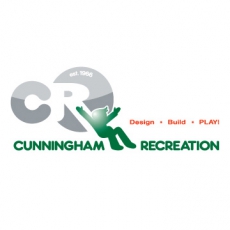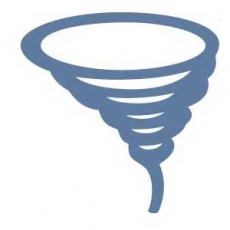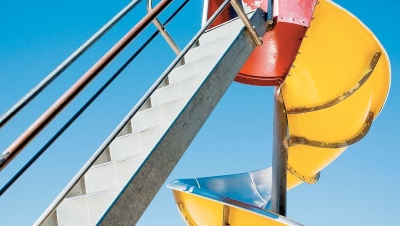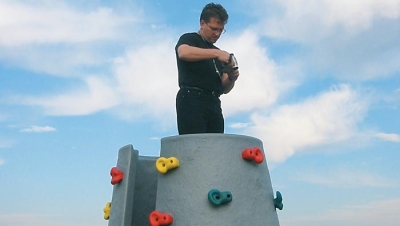The International Play Equipment Manufacturers Association (IPEMA) is a non-profit trade association for manufacturers of public play equipment and surfacing materials, as well as consultants and suppliers related to the industry. IPEMA also provides a product certification program for public play equipment and surfacing materials. To learn more or become a member, visit IPEMA.org.
Press Releases

HARRISBURG, PA (March 19, 2025) – Playgrounds are increasingly incorporating natural elements, with research suggesting that natural settings significantly enhance children’s physical, cognitive and emotional development, reports the International Play Equipment Manufacturers Association (IPEMA), a non-profit trade association. Beyond plastic and metal structures, play spaces are going back to the basics by featuring elements like logs, flower beds, boulders, trees and more.
Integrating natural elements into play spaces offers a range of developmental benefits that enhance children's physical, emotional and cognitive growth. According to a study published in the National Library of Medicine, natural play elements provide diverse sensory experiences and encourage active exploration, which fosters creativity, problem-solving skills and resilience. Play spaces with natural elements also help reduce stress and improve emotional well-being by connecting children with nature and offering opportunities for unstructured play.
"Connecting kids with nature is essential for their well-being, helping them feel better, focus more and grow into happier, healthier individuals,” said Dr. Suzanne Quinn of KOMPAN Play Institute Manager, Americas and member of IPEMA. “Despite challenges like space, cost and maintenance in urban areas, it's crucial to prioritize nature in play spaces to nurture our humanity."
Traditional playground equipment, on the other hand, provides structured activities that develop motor skills, coordination and social interactions through climbing, swinging, rocking, gliding and spinning. When combined, natural elements and traditional equipment create a balanced and well-rounded outdoor play experience and environment. Natural features like rocks, logs and water elements can be integrated with durable manufactured equipment like slides, swings and climbing structures to offer a comprehensive play experience that supports a wide range of developmental needs while stimulating a child’s imagination and sense of adventure.
Dr. Quinn supports this by explaining, “Along with a variety of non-toxic plants, shrubs, trees, and touchable natural materials in the play space, there should be a variety of structures to support movements, such as climbing, swinging, spinning, rocking, swaying and balancing. These activities should be accessible and usable for persons of all abilities.”
Playground industry experts are recognizing that local municipalities want designs that feature natural materials, whether they’re existing or added to well-established playground spaces.
There are important considerations to make in the planning process for a new and safe nature-infused playground. Communities with modern playgrounds should consider how natural elements can be safely built into their design to encourage more cohesiveness with their surroundings. This includes site design, layout, gardens or other special areas and overall safety surfacing.
It is also important to note that playground designs that desire more nature play and natural playgrounds should still include traditional play types with durable manufactured equipment that allow for types of play like swinging, gliding and spinning. It is crucial to provide both natural and traditional play to provide a well-rounded outdoor play experience.
“Design tips I recommend for nature play and natural playgrounds is to create a playful and welcoming atmosphere for all people,” Dr. Quinn said. “Activate the senses with nature that is touchable, smellable and seeable. Activate the body with play events to choose from including climbing, swinging, spinning, balancing, rocking and sliding. And overall, respect nature and our common worlds.”
Combining both natural and traditional play elements enhances child development. Natural elements improve sensory and emotional growth, while traditional equipment builds physical and social skills. By thoughtfully integrating both, communities can create engaging, balanced play spaces that inspire creativity and growth.
Many reputable associations have grown out of a need for playgrounds to be well built and safe for our children. In the 80s the American Standard for Testing Materials (ASTM) responded to the efforts of the Consumer Product Safety Commission (CPSC) by providing testable standards to support the new safety guidelines in CPSC’s Handbook for Public Playground Safety. The ASTM collaborated with many playground experts and used the CPSC’s statistics on playground safety to develop ASTM Standard F 1487, Standard Specifications for Playground Equipment for Public Use. These standards were created to force the identification and elimination of playground hazards. Manufacturers now had detailed specifications on which to test their equipment. The International Play Equipment Manufacturers Association (IPEMA) was formed around this same time to assist their members in adhering to the new standards, and to provide a third-party product certification process that validates the compliance efforts of the manufacturers.
IPEMA has over 50 members worldwide, and their seal of approval is widely recognized by play equipment consumers. The IPEMA Equipment Certification Program is a voluntary program that ensures alignment with the standards set forth in ASTM F 1487. The process for certification involves several steps. First, a manufacturer of public playground equipment must have their testing and manufacturing facilities inspected. Program validators of the Detroit Testing Laboratory (DTL) do these inspections. IPEMA contracts with the Detroit Testing Laboratory, an independent, accredited, testing lab that offers technical and developmental services. DTL administers the IPEMA certification program.
During the initial inspection by the validator, calibration procedures, test procedures, test equipment and knowledge of proper playground layout are all reviewed. Once the participant’s facilities and procedures pass inspection, the participant may proceed in providing their own testing and certification—insuring their products comply with the appropriate standards. The participant is provided detailed forms to complete annually to ensure they continue to meet the specifications of the validation process. All products must be tested for compliance every five years, and the manufacturer’s facility is reviewed annually.
These stringent guidelines certify that play equipment products meet safety standards. These standards address the appropriateness of the surfacing, height requirements, structural integrity, safe zones and hardware hazards—such as those that could cause protrusions, strangulation, pinching, etc. Members of IPEMA who participate in the certification program are proud to offer their certification seal of approval to potential clients. This seal validates their efforts to produce safe play equipment.
Besides a discount on the certification program, there are other benefits to membership in IPEMA for play equipment manufacturers. IPEMA is a not-for-profit group of professionals in the playground industry that gives a global voice to the ideas and concerns of its members. IPEMA actively contributes to the ongoing development of CPSC guidelines and ADA guidelines for play areas. They provide their members with “timely, in-depth information on key economic and governmental issues affecting the industry” and “promote relationships with other related organizations to enhance the strength of the marketplace,” as stated in their goals.
Perhaps most importantly, IPEMA continues the dialogue on viable efforts to ensure playground safety worldwide, from a play equipment manufacturer’s viewpoint. Tom Norquist, a founding IPEMA board member and senior vice president of GameTime asserts, “Customers can rest assured when they purchase play equipment and safety surfacing products that are IPEMA certified. However, even with all these improvements in the safety of public play equipment, correct product installation, age-appropriate design, proper supervision and frequent maintenance of the equipment and environment are necessary to ensure the best possible experience for children.”
It’s been said that “It takes a village to raise a child.” One might add, “It takes a multitude of organizations to provide safe play areas.” The diligence of all stakeholders in the playground industry—manufacturers, owners, builders, caretakers, and users—will ultimately ensure that playgrounds are enjoyed safely.











